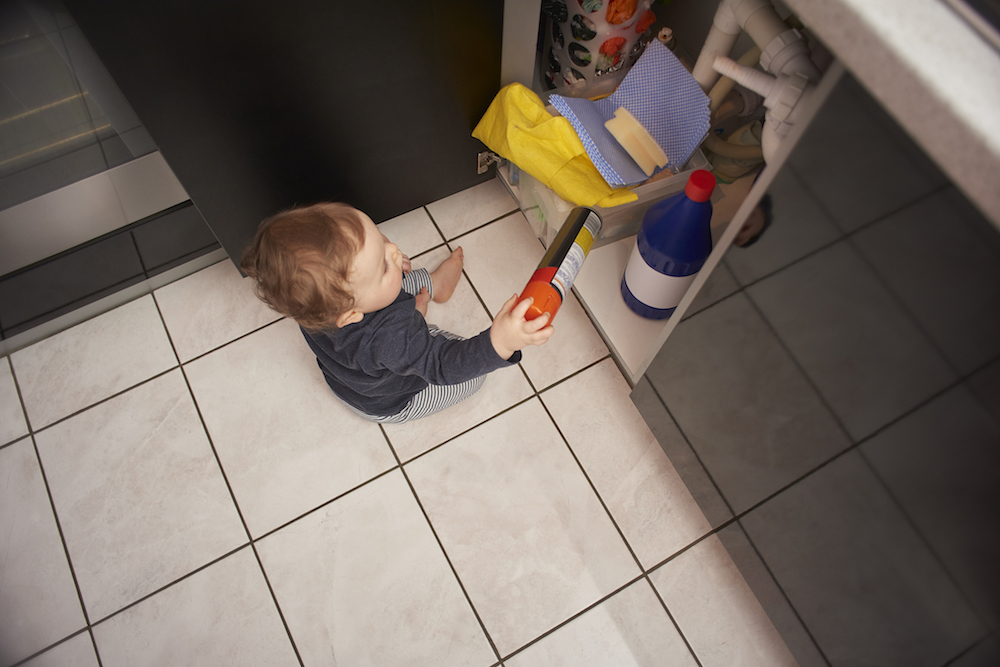
Did you know poisoning is the leading cause of injury-related death in the United States? Every day, over 300 children and adolescents visit emergency centers for poisoning treatment, and many of these cases are completely preventable. Since more than 90 percent of poisonings occur at home, it’s critical to make sure your home is safe.
“Is my home appropriately poison proofed for children?” This is always an important question to ponder, whether you have children or not. I could list dozens of poisons that we, as adults, safely interact with on a daily basis, but many of the most formidable poisons with potential to harm children are right at our fingertips – and theirs.
Common, everyday items in your living space, especially medications and household cleaning products, are poisonous to adults and children alike. Medication dosing mistakes and unsupervised ingestion are common methods of child poisoning. Active, curious children will often investigate—and sometimes try to eat or drink—anything they can get into. Some tips to consider while poison proofing your home include:
Medications:
- Keep medications, vitamins and supplements in the containers they came in with tight, childproof caps. Keep these locked up where children cannot see or reach them, particularly medicines that taste, smell, or look like candy or drinks. Do this at home and when traveling.
- Talk with your child’s pediatrician about all medicines being taken, and be extra careful while administering any prescription drugs to your child. Be sure you are not using two or more products that contain the same active ingredients. It’s common to overdose on acetaminophen.
Household cleaning products:
- Keep products in the containers they came in. Do not use food containers, like cups or bottles, to store household cleaners and other chemicals or products. These should be stored away from food.
- Read and follow the directions for use of products and their disposal. Do this before using the products, follow the advice carefully and never mix chemicals, household cleaners or detergents – this could create a poisonous gas.
- Turn on fans and open windows when using chemicals or household cleaners, and never let children sniff containers to see what is inside.
There are many other objects to consider while poison proofing your home for children, including tobacco and e-cigarette products, alcohol, pesticides, insect repellant, oils, lubricants and personal care products such as deodorant, soap, nail polish, perfume, etc.
National Poison Prevention Week raises awareness of poison prevention nationwide during the third full week of March every year. The week is an opportunity to highlight the dangers of poisonings for people of all ages and promote community involvement in poisoning prevention. If you're interested in learning more about Texas Children's Center for Childhood Injury Prevention, click here.